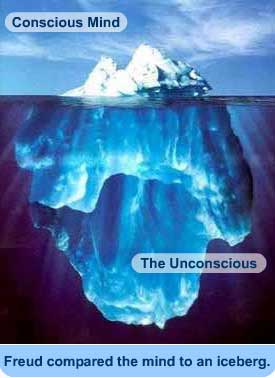
To understand the place hypnosis has in our society, its future direction and pathways, we must examine its history and the many ways humans have used hypnotic states to understand themselves and the world around them past and present.
Hypnosis has been used for the purpose of healing in every civilisation throughout time.
It is believed that most ancient civilisations, including the Egyptians and Greeks, used versions of hypnosis. Genghis Khan was said to have used group suggestion to his soldiers, apparently giving them power to hallucinate as they went into battle. Around this time hypnosis was not understood and results were thought to be connected with ritual, occultism and religious practices.
5000 years ago, in Egypt’s old kingdom, Temple Sleep was common practice. Ailing individuals travelled to temples searching cures from gods.
After long rituals involving ingestion of potent herbs and chanting of prayers, individuals were led to darkened chambers to sleep and await dream cures.
This practice spread to Greece. Sleep temples were built and dedicated to Aesculapius, god of healing. Greeks added individual touch, filling sleep chambers with snakes to please their god. How one sleeps with a chamber full of snakes in darkness is hard to imagine even if aided by the most potent of herbs!
Hypnosis as we know it, has its origins in the unique practices of Dr Franz Anton Mesmer who lived in Vienna during the mid-18th century. He believed in the influence of astronomy and magnets on human health and well-being. He tried to explain how hypnosis worked in scientific terms. In 1766 Mesmer wrote his university dissertation “On The influence of the Heavenly Bodies on the Human Body”. His theory became known as Mesmerism. He suggested that movement of the planets created tides in the body in the same way as they created tides in the sea. Mesmer had the idea that the planets gave off invisible magnetic rays which he called magnetic fluid and that this fluid could be manipulated to affect our bodies via animal magnetism.
In 1774 during a magnetic treatment with a female patient he felt that when he placed his hands on various parts of her body he experienced a magnetic fluid flowing through her. He believed it to be a second circulation to blood containing energy. Prior to treating this female he had witnessed a demonstration of ‘magnetic cures’ and exorcisms by a priest named Father Maximillian Hell. Perhaps an unfortunate last name for an exorcist!
He further developed this theory, in that he believed blockages in the flow of this fluid caused emotional or physical disease, that certain individuals had more or less innate animal magnetism, therefore differing in ability to manipulate flow of this fluid. To remain well the magnetic influence (fluid) needed to be evenly distributed throughout our bodies in order to keep us well. If we became unwell we could be cured by use of magnets to correct imbalance by drawing fluid to places in the body where it was needed to create equilibrium. Later he found items such as paper and wood could be magnetised using his methods and that they worked just as well as metal bars. He found that simply, laying on hands or just speaking to the patient could be sufficient to cure. He believed his own magnetic fluid was especially powerful and that he was responsible for the cures achieved. Although he did get results, this theory was ridiculed by the medical profession.
He also developed ways to treat more than one person at a time. He magnetised trees, to which he attached iron bars with ropes for people to hold on to. He also designed a bacquet (a large bath) containing Mesmer’s ‘magnetised water!’

Patients were seated around a vat which contained a mixture of chemical ingredients. They were connected by cords or jointed rods, or by holding hands. People became hysterical, and seized with catalepsy, others convulsions, some palpitations of the heart; panic attacks and other bodily dysfunctions.
To anyone lacking in knowledge as to the purpose of this activity the scene must have appeared to be one of chaos and amazement!
By mid-1780’s Mesmer had been discredited after an investigation commissioned by Louis XVI. The King had become aware of Mesmer’s dramatic practices which had drawn the amazement and scrutiny of the citizens of Paris. The commission determined that Mesmer had not discovered a real physical fluid, the human body did not contain previously undiscovered channels and that any effects of his treatments were due to the imagination of his subjects. Mesmer retired to Switzerland where he later died.
Individuals continued to make their own unique changes to Mesmer’s underlying theories and procedures into the 19th century. Mesmer’s former student the Marquis de Puysegur discovered artificial Somnambulism. He believed that even though they were in this state, people could not be persuaded to do things they would normally avoid.
Abbe Faria worked in Paris around 1815 He rejected Mesmer’s magnetic fluid theory and believed that Mesmerism worked through powers of suggestion. He developed the eye fixation technique of inducing trance.
John Ellioston (1791-1868) a professor at London University Hospital found that his patients could undergo major surgery using the trance state as anaesthesia.
James Braid (1795-1860) a Scottish surgeon invented the term “hypnosis” in 1842. Braid rejected the magnetism theory and worked with the eye fixation method. Proving that visual fixation on a particular object could induce a trance like state. Braid also invented “the suggestions method.” His theory was that if someone was suffering from hysteria they were fixed on negative ideas and that if positive thoughts were suggested whilst in trance, they would be cured. In 1846 another Scot James Esdaile was using hypnosis in hospitals in India. Several thousand operations were performed under hypnotic anaesthesia. He submitted reports to the British Medical Association showing the significant drop in post-operative death rate from 50% to5%.
In France there were two schools of thought. In 1860 Dr Liebeault heard a paper of Braids read at the French Academy of Science. Hippolite Bernheim a professor at the medical school in Nancy became interested in Liebeault’s practice after one of his patients was cured by Liebeaults hypnotic suggestions. They formed a centre for hypnotic healing, and taught that hypnosis was purely suggestion and that rapport between patient and Doctor was essential. They called this Psychotherapy. Around the same time 1862, Jean-Martin Charcot, an eminent neurologist, was working in a clinic in Salpettriere. He believed that hypnosis was a pathological state. He believed that hysterical illness had physical origins such as a diseased brain and that physical action, not suggestion, was at the root of the hypnotic healing theory. Charcot was also the first to believe in different levels of trance.
Freud disagreed with Charcot’s theories. Unable to get a patient into trance, he tried free association in the waking state and when his patient was cured, he dismissed hypnosis and interest waned due to his influence within the medical profession.
Freud invented the Iceberg model of the mind. Modern theory is based on this. The critical factor is the name given to the process by which we accept or reject suggestions or information we are given. It lies around the water line in the iceberg model. It is thought of as being similar to a filter.
 When we are told a fact, it is received in our conscious mind, this then checks with memory and emotion in the unconscious mind and decides how to process it. We are more likely to accept information we already hold in our data banks and likely to reject information which is not.
When we are told a fact, it is received in our conscious mind, this then checks with memory and emotion in the unconscious mind and decides how to process it. We are more likely to accept information we already hold in our data banks and likely to reject information which is not.
Suggestion is the process used in modern day hypnotherapy. To achieve this we aim to bypass or reduce the critical faculty. If we suggest that someone will find it easy to lose weight or stop smoking this will be rejected by the critical faculty if they believe the opposite. It is believed that part of the critical faculty remains in place at all times. This prevents people from taking in harmful suggestions. This means we have to use therapeutic suggestion in a way that is acceptable to our client. The principle ways of bypassing the critical factor are becoming an authority figure, using the client’s imagination, repeating the message until it becomes familiar.
Modern hypnotherapy uses induction to bring about hypnosis.
There are seven basic induction methods:
- Relaxation
- Eye fixation
- Mental misdirection
- Confusional
- Loss of equilibrium
- Shock to the nervous system
- Post-hypnotic suggestion
We now know that our brain waves need to be slowed down. Between Alpha 8-13 cps and Theta 4-7 cps to enable hypnotic trance.
In the past hypnosis has been used in attempts to heal both physical and psychological ailments. Today it is primarily used to treat psychological issues. Although increasingly it is being used by dentist’s to anaesthetise, instead of injections, and also in child birth instead of pain relief.
Suggestion has always been part of hypnotherapy, along with trance like states or sleeps, and there has always been a degree of physical and emotional healing, which ever method used. The difference is we no longer use sensory overload from ingestion and inhalation of potent herbs to induce trance like states and we would not think of convulsions as being part of a cure as Mesmer did.
Due to our understanding of the conscious and unconscious mind, the critical faculty and how to bypass it, we are able to use hypnosis effectively in many areas such as smoking cessation, in the treatment of phobias, anxieties, weight loss and much more. Our knowledge of brainwaves has enabled us to understand Trance and the different levels of relaxation required to induce trance and hypnosis.









